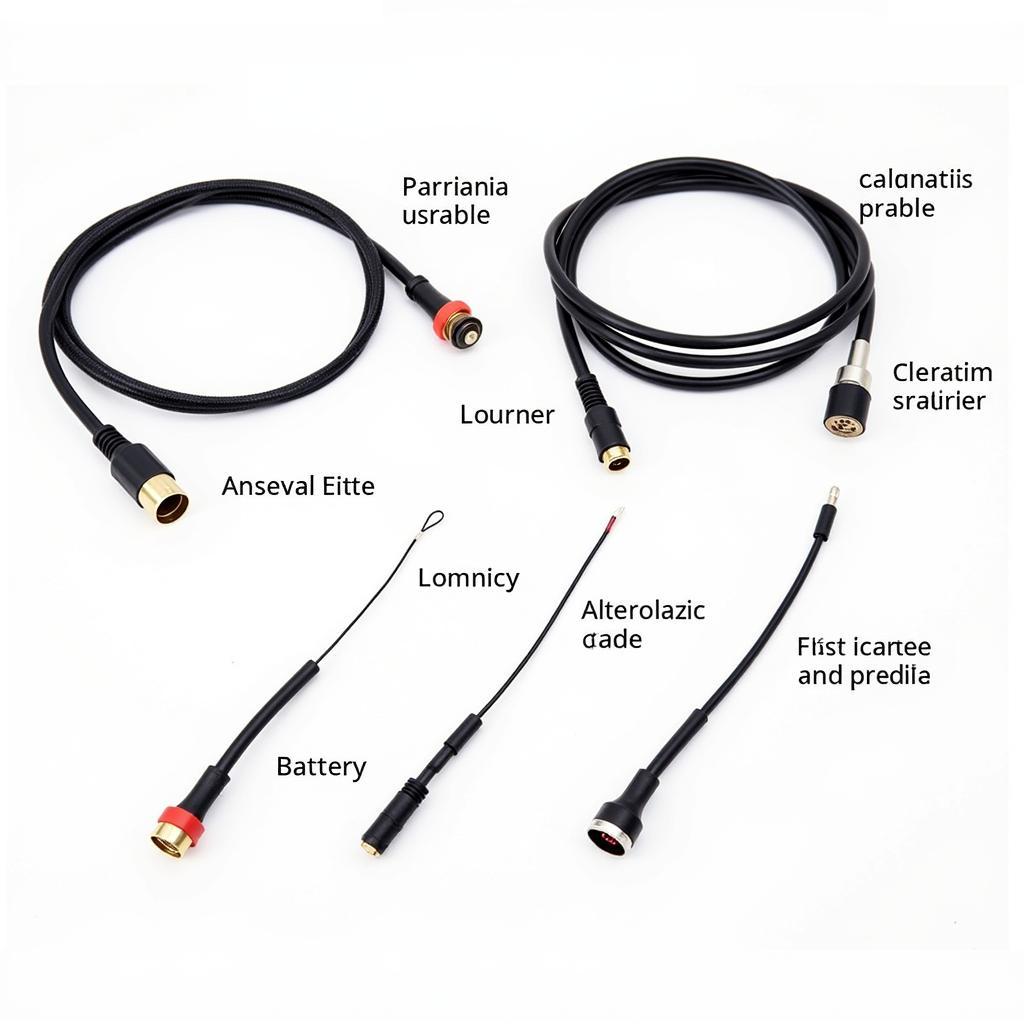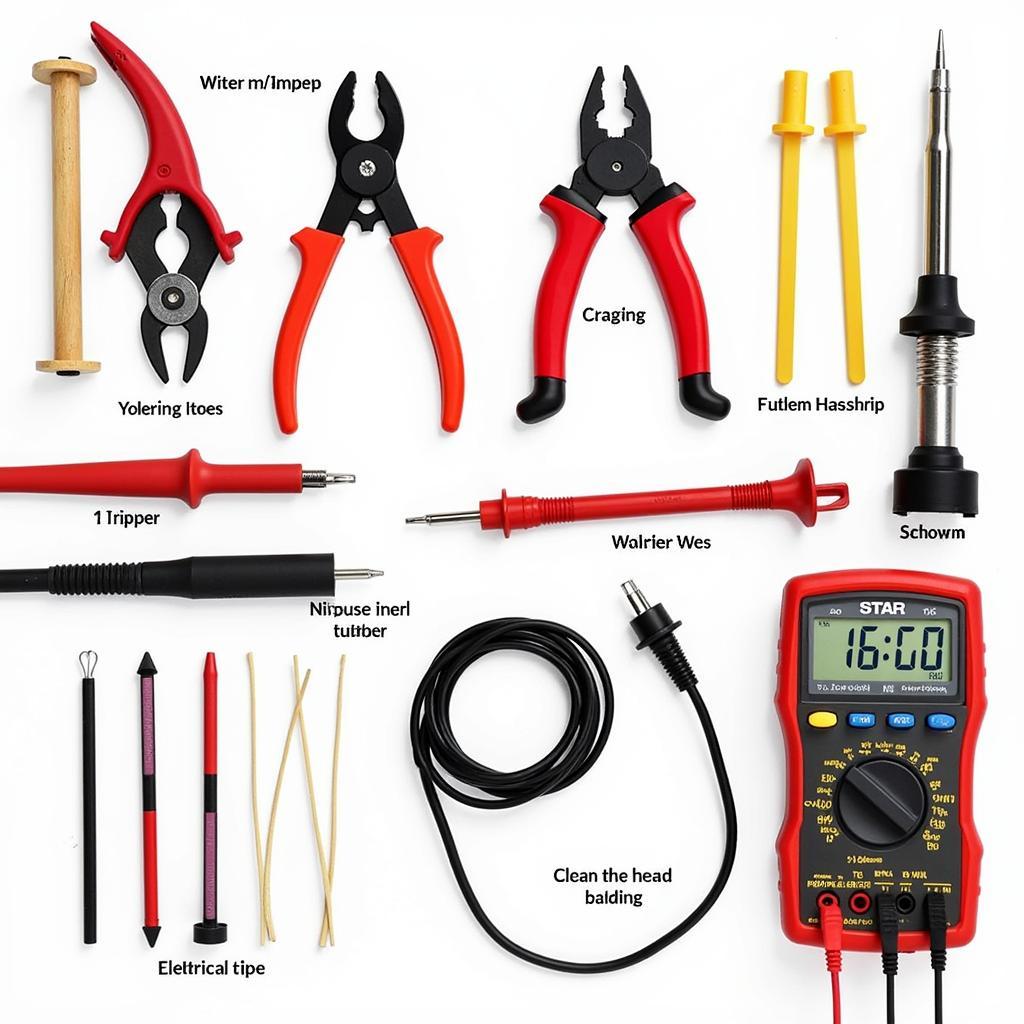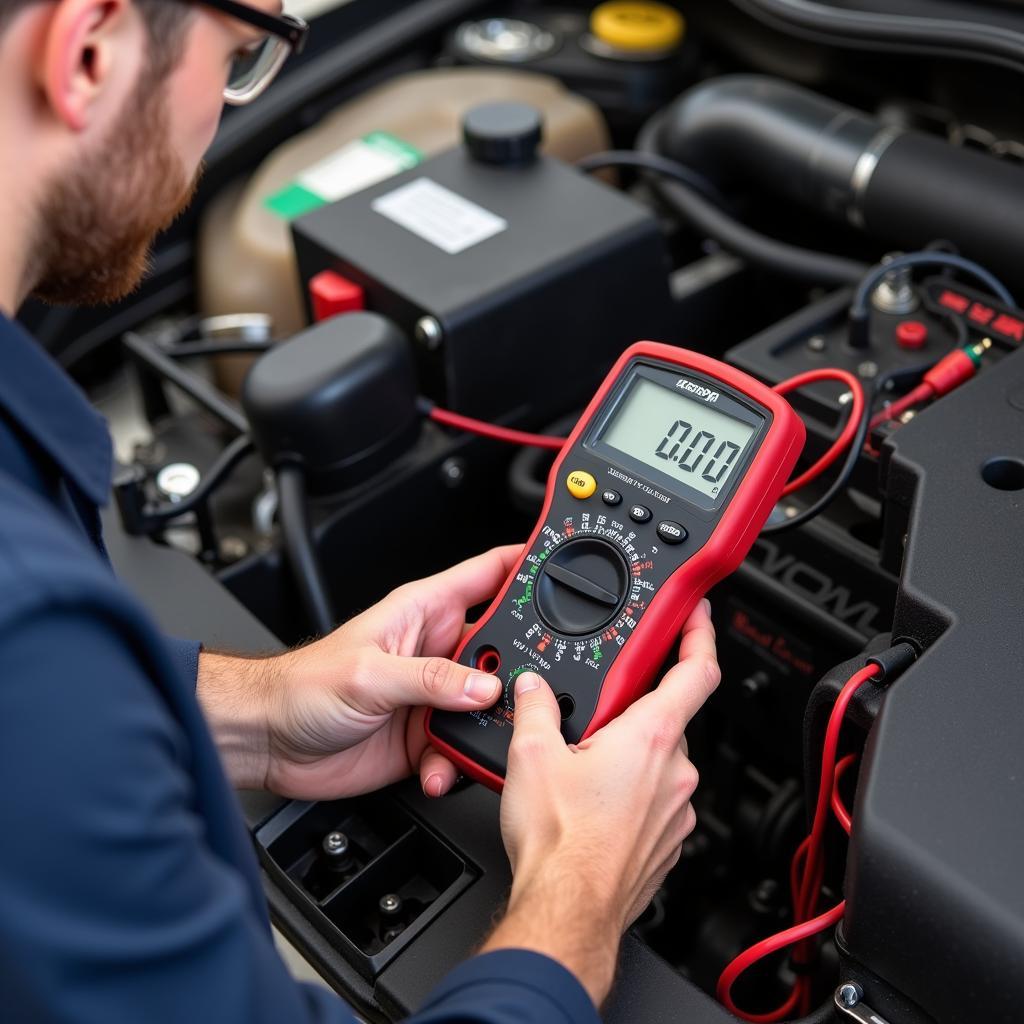A comprehensive Tools Kit Car Power Cable is essential for any car owner, whether a seasoned mechanic or a DIY enthusiast. This guide dives into the critical components of a car power cable tools kit, helping you choose the right tools and understand their uses. We’ll explore various types of cables, connectors, and tools needed for installation and troubleshooting. Let’s empower you with the knowledge to tackle any car power cable project with confidence.
One of the most helpful resources for any car owner is a well-stocked toolkit. Having the right tools can save you time, money, and frustration when dealing with common car issues. Check out our article on tools every car owner should have for a comprehensive guide to essential car maintenance tools.
Understanding Car Power Cables and Their Importance
Car power cables are the lifeblood of your vehicle’s electrical system, responsible for delivering power from the battery to various components, including the starter, alternator, and lighting system. A reliable power cable setup is crucial for ensuring optimal vehicle performance and preventing electrical malfunctions. These cables come in various gauges (thicknesses), each suited for different amperage requirements. Choosing the correct gauge is vital to prevent overheating and potential fire hazards.
Types of Car Power Cables
Different types of power cables serve different purposes within a vehicle’s electrical system. Battery cables, typically thick and heavy-duty, connect the battery to the starter and ground. Alternator cables transfer power generated by the alternator to the battery and electrical system. Other specialized cables power specific components like the ignition system and lighting. Understanding these different cable types helps you select the appropriate tools for working with them.
 Different Types of Car Power Cables
Different Types of Car Power Cables
Knowing which tools are necessary for specific car maintenance tasks can be incredibly valuable. For information about the tools needed when working with car batteries, see our article on car battery tools needed.
Building Your Tools Kit Car Power Cable
A well-equipped tools kit car power cable simplifies installation, maintenance, and troubleshooting. Here’s a breakdown of essential tools:
- Wire Cutters/Strippers: Essential for cutting and stripping cable insulation, exposing the conductor for connections.
- Crimping Tool: Used to secure connectors to the cable ends, ensuring a tight and reliable connection.
- Soldering Iron & Solder: For creating permanent, low-resistance connections, particularly useful for high-current applications.
- Heat Shrink Tubing: Provides insulation and protection for soldered or crimped connections.
- Multimeter: A crucial diagnostic tool for testing voltage, continuity, and resistance in the electrical system.
- Cable Ties: Keep cables organized and prevent them from becoming tangled or damaged.
- Electrical Tape: Provides additional insulation and protection for connections.
 Essential Tools for Working with Car Power Cables
Essential Tools for Working with Car Power Cables
If you’re looking to expand your automotive tool collection beyond just power cable tools, our comprehensive car mechanics tools list provides a helpful starting point.
Choosing the Right Gauge Wire
Selecting the correct wire gauge is critical. An undersized wire can overheat, potentially leading to fire hazards. Oversized wire can be unnecessarily expensive and difficult to work with. Consult your vehicle’s wiring diagram to determine the correct gauge for your specific application.
Troubleshooting Car Power Cable Issues
A tools kit car power cable empowers you to diagnose and fix common electrical issues. Using a multimeter, you can test for voltage drops, shorts, and open circuits. Visual inspection can reveal damaged insulation or loose connections. With the right tools, you can quickly identify and rectify problems, saving time and money.
Safety Precautions
Working with car electrical systems requires caution. Always disconnect the battery’s negative terminal before working on any electrical components to prevent shocks and short circuits. Wear safety glasses to protect your eyes from debris.
 Troubleshooting Car Power Cable Issues with a Multimeter
Troubleshooting Car Power Cable Issues with a Multimeter
Are you curious about the fascinating world of car breakdown tools and their uses? Explore our detailed article on car breakdown tools for a deeper understanding.
Conclusion
A comprehensive tools kit car power cable is indispensable for maintaining your vehicle’s electrical system. By understanding the different types of cables, connectors, and tools, and by following safety precautions, you can confidently tackle any car power cable project, ensuring your vehicle runs smoothly and reliably. Investing in a quality tools kit car power cable is an investment in your vehicle’s longevity and your peace of mind.
FAQ
-
What is the most important tool in a car power cable kit? A multimeter is arguably the most important tool, as it allows you to diagnose electrical problems.
-
How do I choose the right gauge wire? Consult your vehicle’s wiring diagram for the correct gauge.
-
Why is it important to disconnect the battery before working on electrical components? Disconnecting the battery prevents shocks and short circuits.
-
What are the signs of a faulty car power cable? Signs include dimming lights, slow starting, and electrical malfunctions.
-
Where can I find replacement car power cables? Auto parts stores and online retailers carry replacement cables.
-
What is the purpose of heat shrink tubing? Heat shrink tubing insulates and protects connections.
-
How do I use a crimping tool? A crimping tool secures connectors to the cable ends.
For further information on palliative care tools and resources, you can explore our dedicated article on Cancer Care Ontario Palliative Care Tools. This resource provides valuable information and support for those seeking guidance in palliative care.
Need help with car diagnostics? Contact us via WhatsApp: +1(641)206-8880, Email: [email protected] or visit us at 910 Cedar Lane, Chicago, IL 60605, USA. We have a 24/7 customer support team ready to assist you.

Leave a Reply